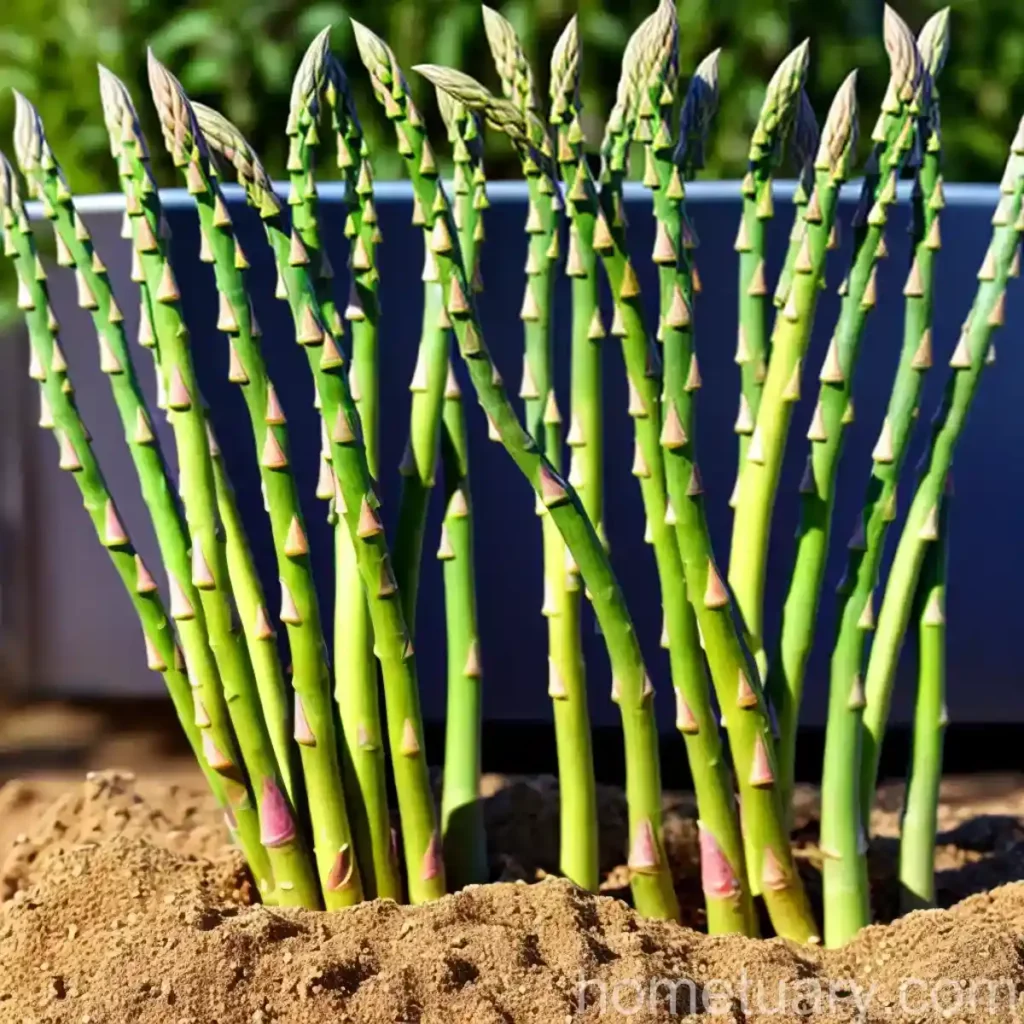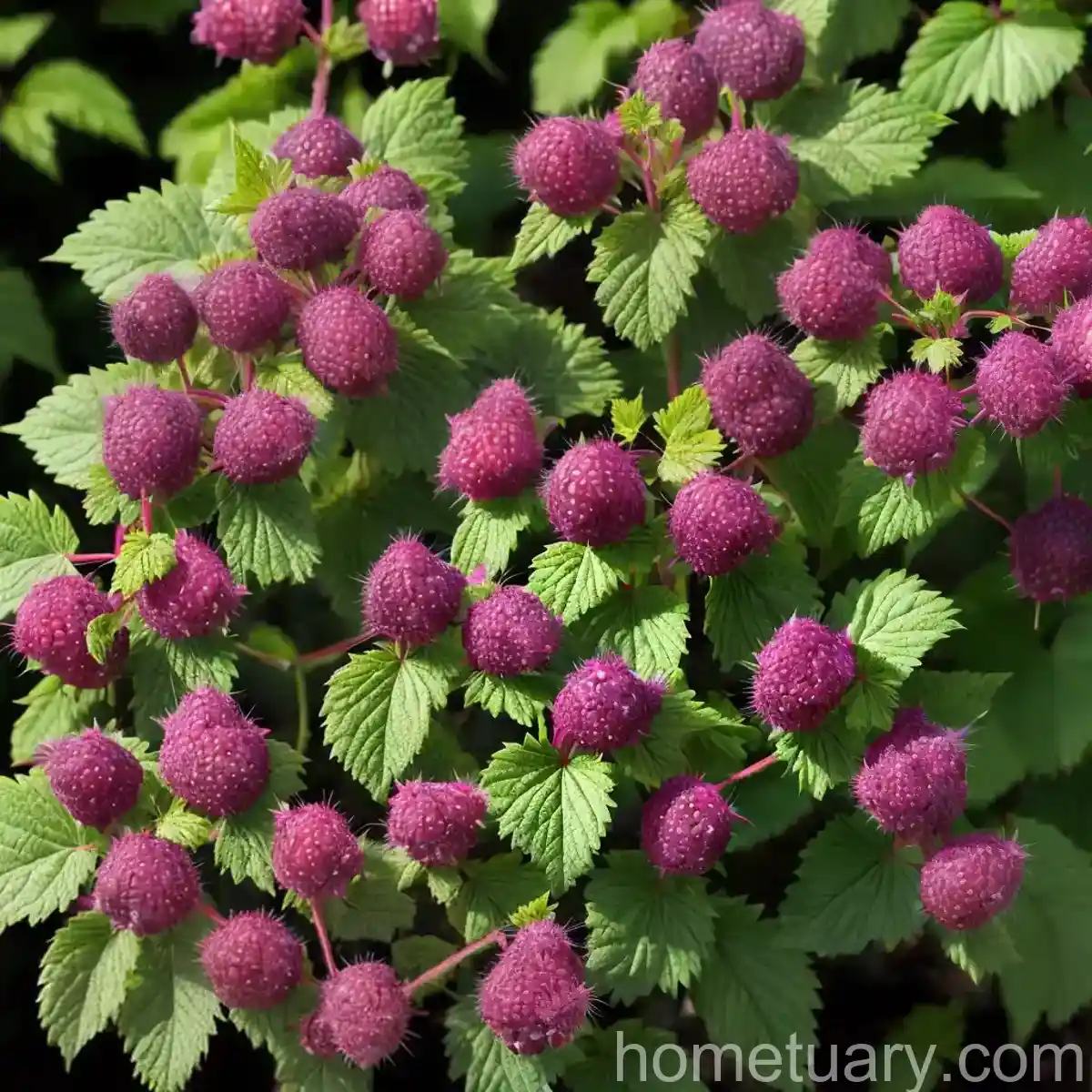Asparagus (Asparagus officinalis ‘Jersey Knight’) – A Comprehensive Guide
Asparagus is a popular and delicious vegetable that is widely cultivated in home gardens, commercial farms, and even as an ornamental plant. Known scientifically as Asparagus officinalis ‘Jersey Knight’, it is a perennial flowering plant that belongs to the Asparagaceae family. In this comprehensive guide, we will delve into the various aspects of growing, caring for, and utilizing asparagus in its ‘Jersey Knight’ variety.
What is Asparagus (Asparagus officinalis ‘Jersey Knight’)?
Asparagus is a hardy perennial plant with tall, delicate, fern-like foliage and tasty, edible shoots that emerge in spring. ‘Jersey Knight’ is a popular variety known for its high yield and disease resistance. This cultivar produces tender, green spears with purple-tinged tips, making it not only a culinary delight but also an attractive addition to a garden landscape.
Key Takeaways – Asparagus (Asparagus officinalis ‘Jersey Knight’)
Before diving into the specifics of caring for Asparagus officinalis ‘Jersey Knight’, let’s outline some key takeaways:
- Culture: Understanding the cultural requirements of the plant, including its water, sunlight, and soil needs.
- Uses: Exploring the diverse uses of asparagus, both as a culinary vegetable and as an ornamental plant.
- Propagation: Learning about suitable methods for propagating ‘Jersey Knight’ asparagus.
- Container Growing: Exploring the feasibility of growing asparagus in containers.
- Diseases and Pests: Identifying common diseases and pests that affect ‘Jersey Knight’ asparagus, and how to manage them effectively.
- Fun Facts: Discovering interesting and lesser-known facts about ‘Jersey Knight’ asparagus.
Now, let’s delve into each of these aspects to gain a comprehensive understanding of caring for and optimizing the growth of Asparagus officinalis ‘Jersey Knight’.
Culture
Cultivating ‘Jersey Knight’ asparagus successfully involves understanding its specific cultural requirements. The following are critical factors to consider when tending to this perennial vegetable:
Water
Asparagus generally requires consistent moisture, especially during the initial stages of growth and spear development. However, it is crucial to avoid waterlogging the soil, which can lead to root rot and other diseases. The amount of water needed can vary depending on the climate and soil type, but typically, asparagus benefits from around 1 to 1.5 inches of water per week.
Sunlight
Asparagus is a sun-loving plant that thrives in full sunlight. When selecting a site for planting, ensure that it receives at least 6-8 hours of direct sunlight daily. Adequate sunlight is crucial for the plant’s photosynthesis and overall growth and productivity.
Soil
The soil should be well-draining, loose, and rich in organic matter. Asparagus prefers a slightly acidic to neutral soil with a pH range of 6.5 to 7.5. It is essential to prepare the soil adequately before planting, incorporating compost or well-rotted manure to improve its structure and fertility.
Fertilizer
Fertilization is a key aspect of asparagus care. Before planting, it is beneficial to incorporate a balanced fertilizer into the soil according to soil test recommendations. During the growing season, side-dress the plants with nitrogen-rich fertilizer at appropriate intervals to support healthy and vigorous growth.
Pruning
Pruning plays a significant role in maintaining the vigor and productivity of asparagus plants. Over the growing season, it is essential to remove any yellowing or dead foliage to prevent the spread of diseases and encourage the development of new shoots.
Propagation
Propagation of ‘Jersey Knight’ asparagus can be achieved through various methods, including division, seeds, and in some cases, by planting crowns. Crowns are typically the most common method of propagation, providing a quicker way to establish a productive asparagus bed.
Division
Dividing mature asparagus crowns is a primary way to propagate ‘Jersey Knight’ asparagus. This involves carefully digging up and separating the crowns, ensuring that each division has viable roots and buds. These divisions can then be replanted in prepared beds to continue growing and producing shoots.
Seeds
Growing asparagus from seeds is also a viable option, although it requires more patience as the plants typically take longer to establish and produce a significant harvest. However, starting from seeds allows for the introduction of new varieties and potentially offers a diverse range of asparagus plants in the garden.
Container Growing
While asparagus is commonly grown in traditional garden beds, it can also thrive in container gardens when provided with sufficient space and the right growing conditions.
Popularity
Growing asparagus in containers has gained popularity in recent years, particularly among urban gardeners and those with limited outdoor space. Container gardening offers the flexibility to cultivate ‘Jersey Knight’ asparagus on patios, balconies, and other small areas, provided that the containers are spacious enough to accommodate the deep root system of asparagus plants.
Common Diseases
As with any plant, ‘Jersey Knight’ asparagus is susceptible to various diseases that can affect its overall health and productivity. Understanding the common diseases and their causes is crucial for effective management and prevention.
Disease Diagnosis
Diagnosing diseases in asparagus plants requires careful observation of symptoms such as discolored or distorted foliage, wilting, and stunted growth. Common diseases that can affect ‘Jersey Knight’ asparagus include rust, fusarium wilt, and asparagus stem and crown rot. By recognizing the signs early and taking appropriate measures, it is possible to mitigate the impact of these diseases and protect the plants.
Common Pests
In addition to diseases, ‘Jersey Knight’ asparagus can also be targeted by various pests, including asparagus beetles, aphids, and slugs. These pests can cause damage to the foliage, leading to reduced vigor and yield. Implementing effective pest control measures, such as regular inspection and the use of natural predators or organic pesticides, can help manage pest infestations and protect the health of the plants.
Botanist’s Tips
As a plant scientist and enthusiast, I have gathered various tips for cultivating and caring for ‘Jersey Knight’ asparagus to ensure optimal growth and productivity. Some of the key tips include:
- Soil Preparation: Prior to planting, prepare the soil by incorporating organic matter such as compost or well-rotted manure to enhance its fertility and structure.
- Mulching: Apply a layer of organic mulch around the base of asparagus plants to conserve moisture, suppress weed growth, and maintain an even soil temperature.
- Companion Planting: Consider planting ‘Jersey Knight’ asparagus alongside compatible companion plants, such as tomatoes, basil, and parsley, to encourage symbiotic relationships and provide natural pest control benefits.
- Harvesting: When harvesting asparagus spears, snap or cut them just above the soil level to avoid damaging the crowns, allowing the plants to continue producing new shoots.
Fun Facts
Asparagus has a rich history and unique characteristics that make it not only a valuable culinary ingredient but also an intriguing plant to grow. Consider the following fun facts about ‘Jersey Knight’ asparagus:
- The plant can produce both male and female flowers, with the male plants typically favored for optimal spear production.
- Asparagus is an excellent source of nutrients, including fiber, vitamins A, C, E, and K, as well as minerals such as iron and potassium.
- The distinctive aroma produced by urine after consuming asparagus is attributed to the presence of sulfur-containing compounds in the vegetable.
Links to External Resources
To further expand your knowledge and expertise in growing ‘Jersey Knight’ asparagus, explore the following links to valuable external resources:
- University of California Cooperative Extension: Asparagus Production Basics
- Penn State Extension: Planting Asparagus in the Home Garden
- University of Illinois Extension: Growing Asparagus in the Home Garden
- The Spruce: How to Grow Asparagus
With this comprehensive guide, you are equipped with essential knowledge and practical insights into cultivating and nurturing ‘Jersey Knight’ asparagus. Whether you are a seasoned gardener or an aspiring enthusiast, the gratifying experience of growing and harvesting your own delicious asparagus awaits you. Take delight in the bountiful rewards of tending to ‘Jersey Knight’ asparagus, and relish the flavors of this exceptional perennial vegetable.
As a plant scientist, I am committed to promoting sustainable and productive gardening practices, and I hope that this guide has inspired and empowered you to embark on a rewarding journey of asparagus cultivation. Happy gardening!















